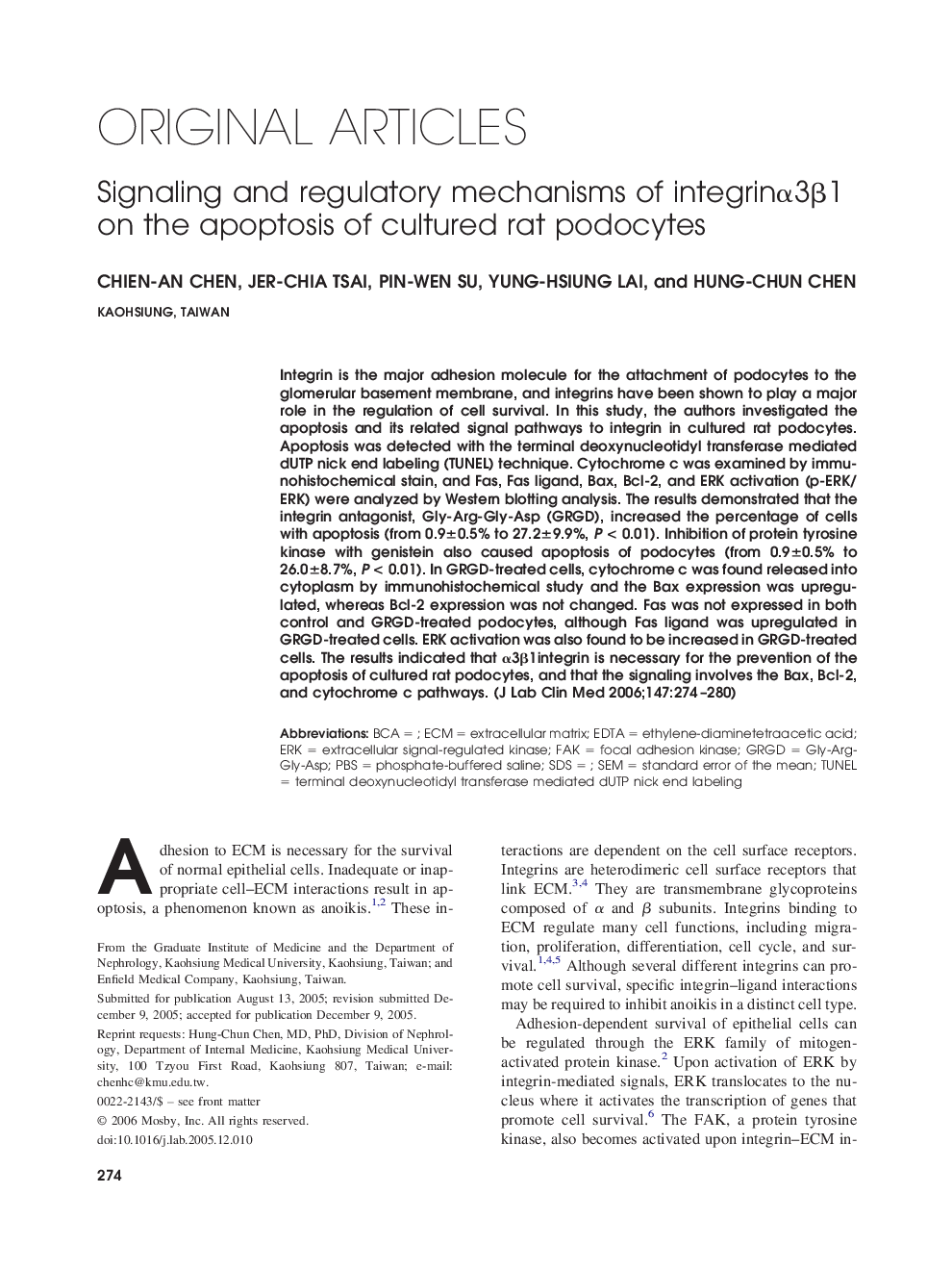| Article ID | Journal | Published Year | Pages | File Type |
|---|---|---|---|---|
| 3481962 | Journal of Laboratory and Clinical Medicine | 2006 | 7 Pages |
Integrin is the major adhesion molecule for the attachment of podocytes to the glomerular basement membrane, and integrins have been shown to play a major role in the regulation of cell survival. In this study, the authors investigated the apoptosis and its related signal pathways to integrin in cultured rat podocytes. Apoptosis was detected with the terminal deoxynucleotidyl transferase mediated dUTP nick end labeling (TUNEL) technique. Cytochrome c was examined by immunohistochemical stain, and Fas, Fas ligand, Bax, Bcl-2, and ERK activation (p-ERK/ERK) were analyzed by Western blotting analysis. The results demonstrated that the integrin antagonist, Gly-Arg-Gly-Asp (GRGD), increased the percentage of cells with apoptosis (from 0.9±0.5% to 27.2±9.9%, P < 0.01). Inhibition of protein tyrosine kinase with genistein also caused apoptosis of podocytes (from 0.9±0.5% to 26.0±8.7%, P < 0.01). In GRGD-treated cells, cytochrome c was found released into cytoplasm by immunohistochemical study and the Bax expression was upregulated, whereas Bcl-2 expression was not changed. Fas was not expressed in both control and GRGD-treated podocytes, although Fas ligand was upregulated in GRGD-treated cells. ERK activation was also found to be increased in GRGD-treated cells. The results indicated that α3β1integrin is necessary for the prevention of the apoptosis of cultured rat podocytes, and that the signaling involves the Bax, Bcl-2, and cytochrome c pathways.
